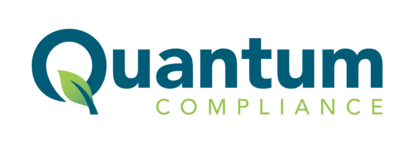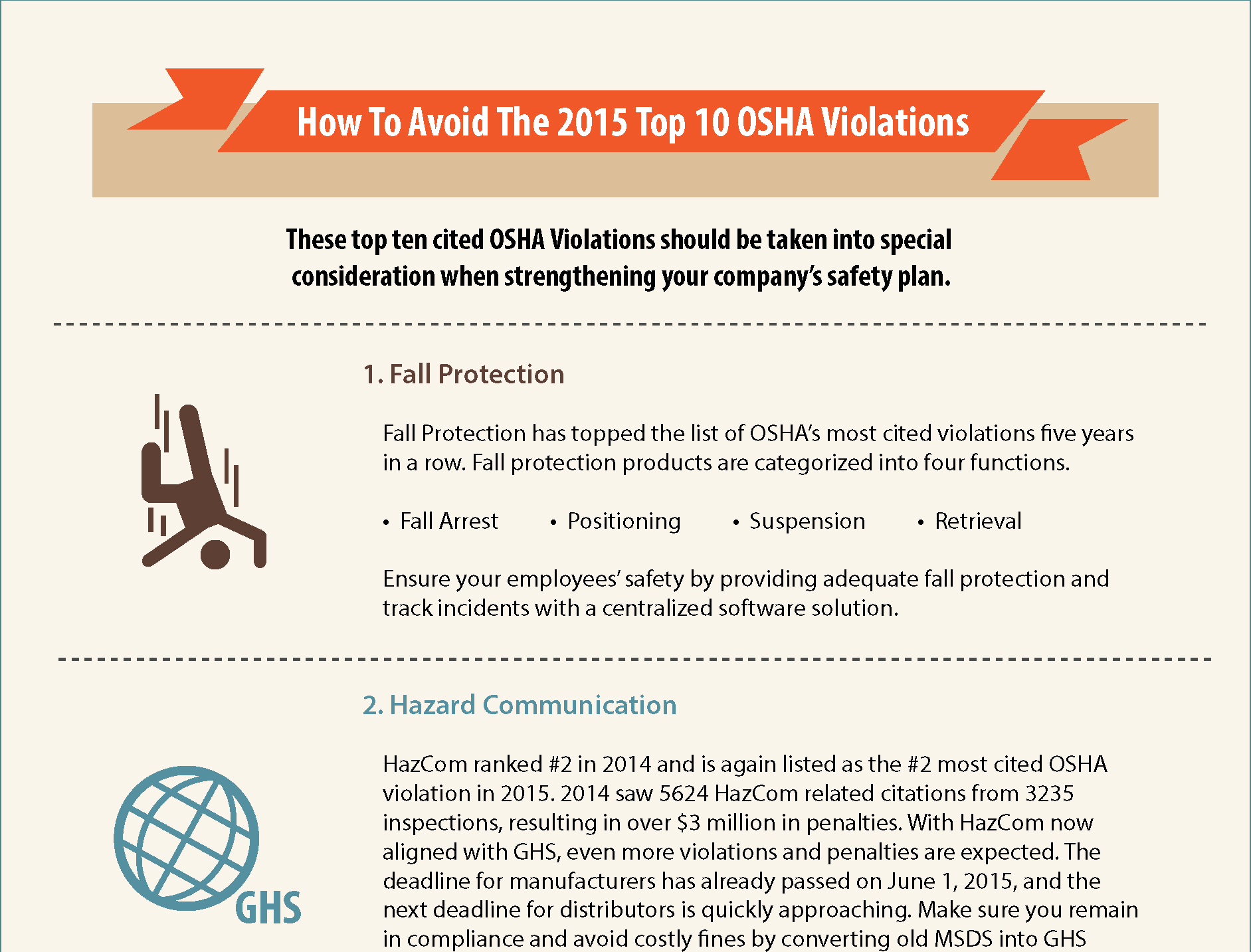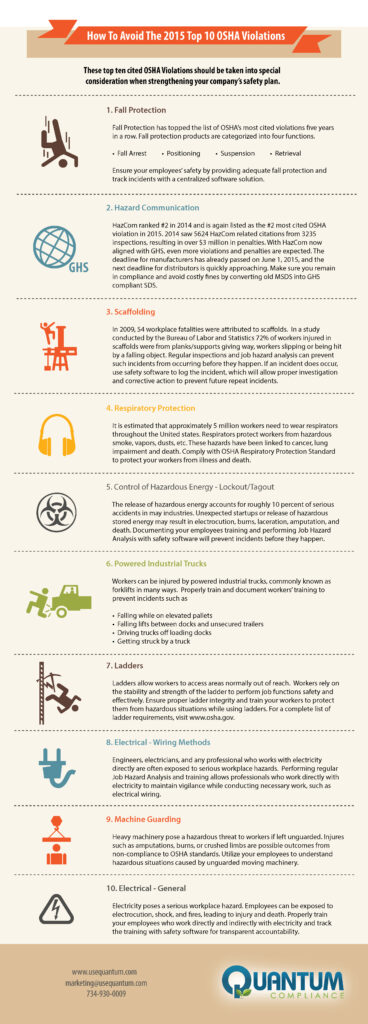OSHA published a top ten most cited violations recently. These top ten common OSHA violations should be taken into special consideration when strengthening your company’s safety plan.
1. Fall Protection
Fall Protection has topped the list of OSHA’s most cited violations five years in a row. Fall protection products are categorized into four functions.
- Fall Arrest
- Positioning
- Suspension
- Retrieval
Ensure your employees’ safety by providing adequate fall protection and track incidents with a centralized software solution.
2. Hazard Communication
HazCom ranked #2 in 2014 and is again listed as the #2 most cited OSHA violation in 2015. 2014 saw 5624 HazCom related citations from 3235 inspections, resulting in over $3 million in penalties. With HazCom now aligned with GHS, even more violations and penalties are expected. The deadline for manufacturers has already passed on June 1, 2015, and the next deadline for distributors is quickly approaching. Make sure you remain in compliance and avoid costly fines by converting old MSDS into GHS compliant SDS.
3. Scaffolding
In 2009, 54 workplace fatalities were attributed to scaffolds. In a study conducted by the Bureau of Labor and Statistics 72% of workers injured in scaffolds were from planks/supports giving way, workers slipping or being hit by a falling object.
4. Respiratory Protection
It is estimated that approximately 5 million workers need to wear respirators throughout the United states. Respirators protect workers from hazardous smoke, vapors, dusts, etc. These hazards have been linked to cancer, lung impairment and death. Comply with OSHA Respiratory Protection Standard to protect your workers from illness and death.
5. Control of Hazardous Energy – Lockout/Tagout
The release of hazardous energy accounts for roughly 10 percent of serious accidents in may industries. Unexpected startups or release of hazardous stored energy may result in electrocution, burns, laceration, amputation, and death. Documenting your employees training and performing Job Hazard Analysis with safety software will prevent incidents before they happen.
6. Powered Industrial Trucks
Workers can be injured by powered industrial trucks, commonly known as forklifts in many ways. Properly train and document workers’ training to prevent incidents such as
1. Falling while on elevated pallets
2. Falling lifts between docks and unsecured trailers
3. Driving trucks off loading docks
4. Getting struck by a truck
7. Ladders
Ladders allow workers to access areas normally out of reach. Workers rely on the stability and strength of the ladder to perform job functions safety and effectively. Ensure proper ladder integrity and train your workers to protect them from hazardous situations while using ladders. For a complete list of ladder requirements, visit www.osha.gov.
8. Electrical – Wiring Methods
Engineers, electricians, and any professional who works with electricity directly are often exposed to serious workplace hazards. Performing regular Job Hazard Analysis and training allows professionals who work directly with electricity to maintain vigilance while conducting necessary work, such as electrical wiring.
9. Machine Guarding
Heavy machinery pose a hazardous threat to workers if left unguarded. Injures such as amputations, burns, or crushed limbs are possible outcomes from non-compliance to OSHA standards. Utilize your employees to understand hazardous situations caused by unguarded moving machinery.
10. Electrical – General
Electricity poses a serious workplace hazard. Employees can be exposed to electrocution, shock, and fires, leading to injury and death. Properly train your employees who work directly and indirectly with electricity and track the training with safety software for transparent accountability.








